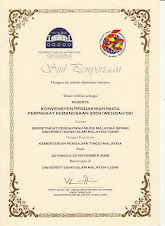Intellectual Contribution of Spanish Muslims (I)
Creative Genius During the Three Centuries of the Umayyad Rule
Dec 25, 2009 Amna Jamal
Poetry of Muslim Spain had really its roots in the poetry of Islamic East and was always influenced by the latter, especially by poets and musicians of Baghdad.
A nation rises or falls by the kind of books it writes. If we carefully survey the history of Muslim Spain we find the Spanish Muslims making greater achievements and contributions in one field of endeavor than in the other in different ages of their history. During the three centuries of the Umayyad rule, their creative genius expressed itself mostly in poetry and literature.
Poetry, the Forte of Arabs
Poetry was the forte of Arabs. They were born poet. They loved poetry and composed it on all occasions. One of the writers of Muslim Spain named Garcia Gomez said, “Everybody, from the poorest farmers to the king, is a poet and every thing serves and is put into poetry.” The founder of the Ummayad dynasty in Spain, Abd ar Rahman I, was a poet of no mean order. His tradition was continued by his successors.
Roots of Poetry in Muslim Spain
Poetry of Muslim Spain had really its roots in the poetry of Islamic East and was always influenced by the latter, especially by poets and musicians of Baghdad. During the first century and more, the Andalusian poets and musicians were inspired by the poetry and music of East and did not produce a great poet of their own. It was only in the ninth and tenth century that Muslim Spain produced poets and writers of lasting fame.
Abu Ali al Qali
He was born in Almeria in 901. In his book ‘Amali’ he discussed grammatical and lexicographical problems. But as it was the custom with the Arabs, he profusely quoted verses of the Arab poets in his discourses on grammar and lexicography.
Ibn Abd-Ribbah
He was a poet-laureate of Abd ar Rahman III. He was descended from a freedom of Hisham l. He became famous with his book ‘Al-Iqd al-Farid’ (The Peerless Necklace) which became immensely popular with later generations. Unlike most of the Andalusi poets, Ibn Abd-Rabbihi composed a narrative poem of 450 lines.
Ibn Hani
He was another great poet of the Umayyad period. But his inclination was towards the heretical sect of the Islmailis and was forced to flee to the Fatimids of North Africa, where he died in 973.
Ibn Hazm
He was the greatest scholar and the most original thinker in Spanish Islam. He was literary writer, poet, a philosopher and the founder of the science of comparative religion—the first in human history. He is said to have written 400 books, of which only 40 are extant. Among his literary writings is his well-known book entitled ‘Tauq al Hamamah’ (The Collar of the Dove). It is a treatise on ‘love and lovers’. Its theme is Platonic Love, i.e. love between soul and soul, without sexual desire and its approach is philosophical. For example while discussing the ‘contrary signs of love’, Ibn Hazm enunciated a Law of Contradiction.
Recommend Article!
The copyright of the article Intellectual Contribution of Spanish Muslims (I) in W European History is owned by Amna Jamal. Permission to republish Intellectual Contribution of Spanish Muslims (I) in print or online must be granted by the author in writing.
The Umayyad Mosque in the Damascus
Read more at Suite101: Intellectual Contribution of Spanish Muslims (I): Creative Genius During the Three Centuries of the Umayyad Rule http://historicalresources.suite101.com/article.cfm/intellectual_contribution_of_spanish_muslims#ixzz0lbaNFmQf







.jpg)
